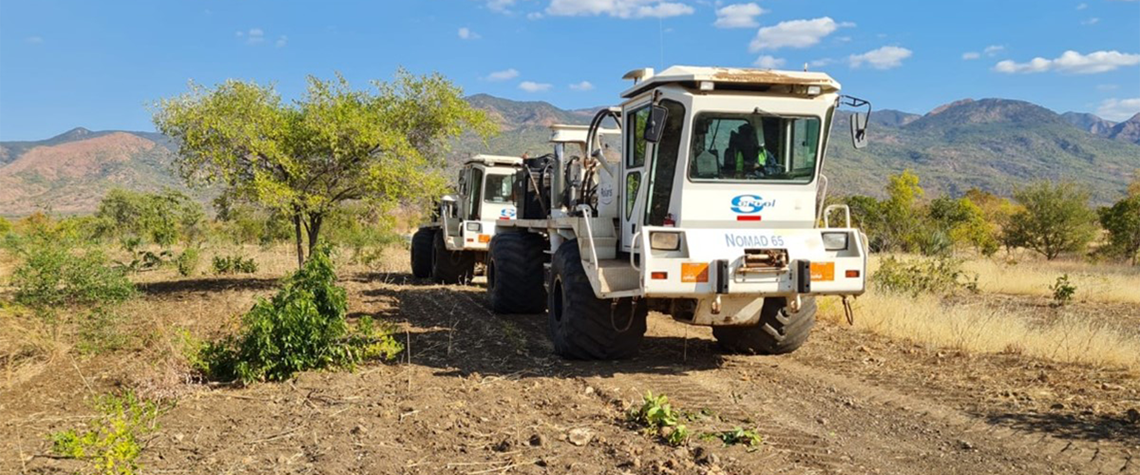ASX-listed independent Invictus Energy is pioneering upstream development in Zimbabwe. Managing Director Scott Macmillan spoke with Petroleum Economist about the company’s progress and plans.
Can you give us an update on progress at your Mukuyu project?
Macmillan: In December 2023, we declared two gas discoveries from our Mukuyu-2 well drilling programme in the Upper and Lower Angwa reservoirs, with the recovery of moveable hydrocarbons to the surface. Subsequently, Mukuyu-1 has also been classified as a discovery in the Upper Angwa, which was successfully drilled in late 2022, confirming the presence of a working hydrocarbons system and improved confidence of resource prospectivity in the Cabora Bassa Basin. We are developing a comprehensive appraisal plan for the Mukuyu gas field consisting of well testing, 3D seismic and appraisal drilling to enable a phased future field development and commercialisation.
What next for your other exploration works in the Cabora Bassa Basin?
Macmillan: We have a large position in the basin and an extensive portfolio of prospects and leads, which have now been de-risked by the Mukuyu discovery. We are maturing the eastern flank of our licence area with some additional seismic we acquired last year and refreshing the wider portfolio with the new insights from Mukuyu. We are aiming to unlock the rest of the portfolio value by demonstrating a new play in a proven hydrocarbon basin.
You have a gas supply memorandum of understanding (MOU) in place with Mbuyu Energy, a development led by Zimbabwean firm Tatanga Energy. Can you tell us about that?
Macmillan: This MOU is the precursor to formalising a long-term gas sales agreement to supply sufficient gas to the proposed plant and follows an MOU first struck in 2019.
Initially, we will look at an option to fast-track up to a 50MW pilot power plant that can take short-term supply from future wells ahead of a phased full field development. Production timelines will ultimately be determined by a range of activities required to firm up resource estimates and a pathway to development.
What will be the next administrative/government approval milestone for Invictus?
Macmillan: Invictus has been working closely with the Zimbabwean government and relevant ministers to conclude the Petroleum Production Sharing Agreement (PPSA). We envisage the PPSA will be formalised in the coming months.
What production capacity are you targeting from Mukuyu?
Macmillan: Full field production capacity will be informed through future appraisal drilling and well testing to determine optimal production and facility size and match it to market demand.
You have secured a rig for another two years. Were you impacted by any of the supply chain issues which some companies experienced last year?
Macmillan: We have an outstanding and dedicated team and support from our service providers and suppliers, and we commenced our campaign on schedule. Securing Exalo’s Rig 202 for another two years removes the need to source and mobilise a drilling rig, which is a major component of the campaign and provides us with flexibility and cost savings. The rig and its team have performed exceptionally to date, and we are pleased to extend our relationship with them.
Will there be potential capacity to supply more than the Mbuyu power projects?
Macmillan: The proposed Mbuyu gas-to-power development can be expanded up to 1,000MW, requiring up to 1.4tcf of gas to convert into power. This will not only feed much-needed power into national grid to help stabilise supply, but also underpin commercialisation of the Mukuyu gas field. Depending on the ultimate resource size from not only Mukuyu but also the rest of our portfolio, we could see Zimbabwe become a net exporter of energy to the region.
Are you looking to secure more domestic supply contracts or aiming to establish exports?
Macmillan: There is a huge energy shortfall in southern Africa at present in both electricity and natural gas supply. There is a large market domestically for power, and we also see a substantial market for large industrial users to build gas into their processes, as we have seen in places such as Tanzania and South Africa once gas supply became available from the development of new discoveries.
The domestic market will be the focus of the initial development, with the potential to export into the region, including the South African market, in the future. We are within 100km of three major interconnectors to [regional energy grid exchange] the Southern Africa Power Pool and can utilise the grid via a ‘virtual pipeline’ to supply electricity to anywhere in the region without the need to build new infrastructure. Gas can be exported through linking up to the existing ROMPCO pipeline to deliver it into a captive market in South Africa. We also have the option to export any liquids (oil/condensate) to Asia by sea via Mozambique.
Regarding those gas supply MOUs, how do you hedge against currency risk?
Macmillan: The project will be insulated from currency risk, as all contracts will be US dollar denominated.
Last time we spoke, you credited Zimbabwean government reforms and a desire to attract foreign investment as significant factors. Is Harare still supportive of your activities? And have there been any further regulatory or fiscal reforms relevant for the gas sector?
Macmillan: We continue to have a collaborative and positive working relationship with the Zimbabwean government, which is promoting foreign investment and has implemented investor friendly reforms such as the amending the Indigenization and Empowerment Act and Special Economic Zone Legislation. Finalising the PPSA with the government will provide a stable and transparent legal and fiscal framework for the development and provide the country with a fair share of her resources.
We also have strong support from local communities and other stakeholders, and we continue to roll out an extensive corporate social responsibility programme that now includes upgrading critical infrastructure such as roads, as well as provisioning for improved year-round community access to and storage of water, solar panel installation and extensive local employment opportunities.














